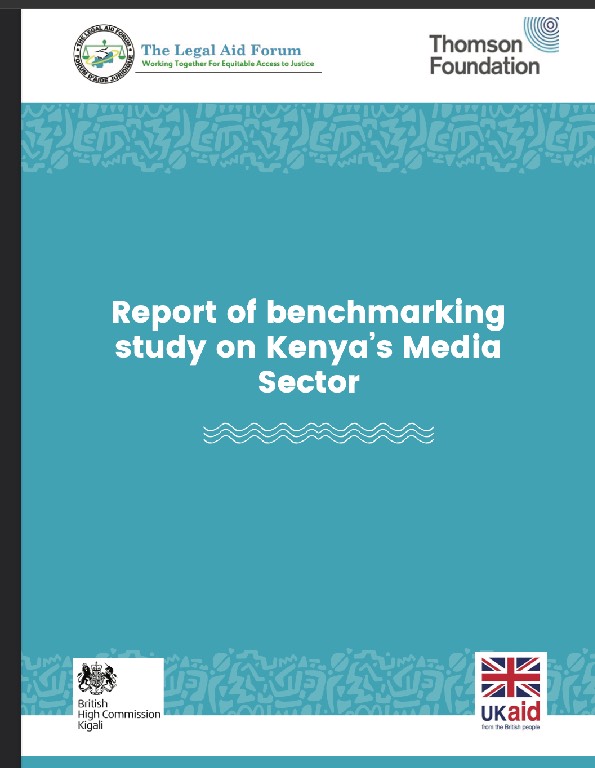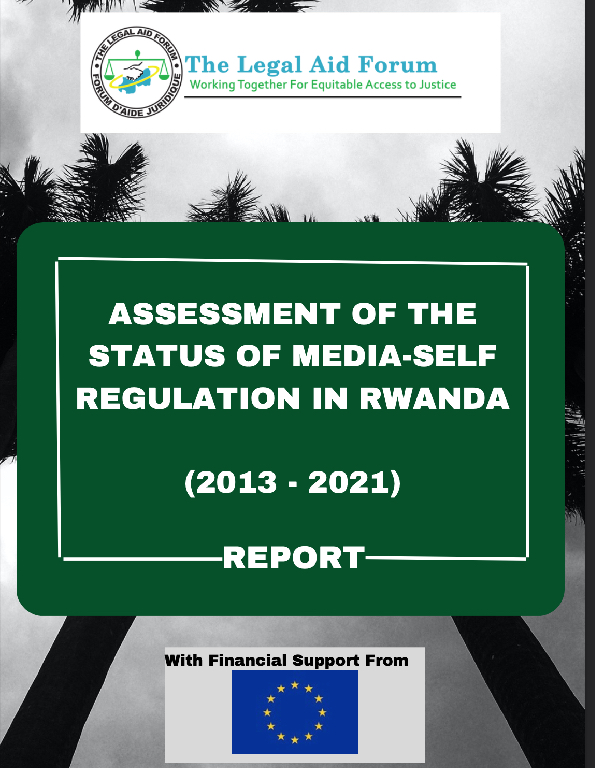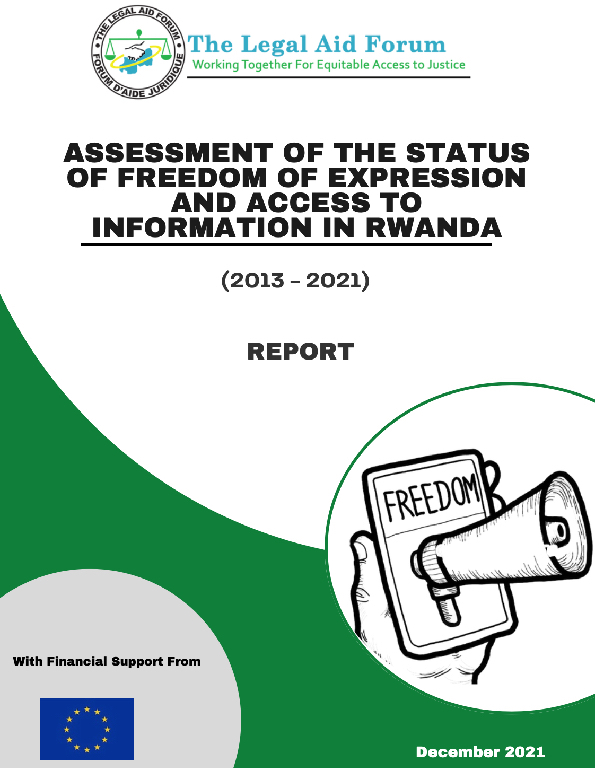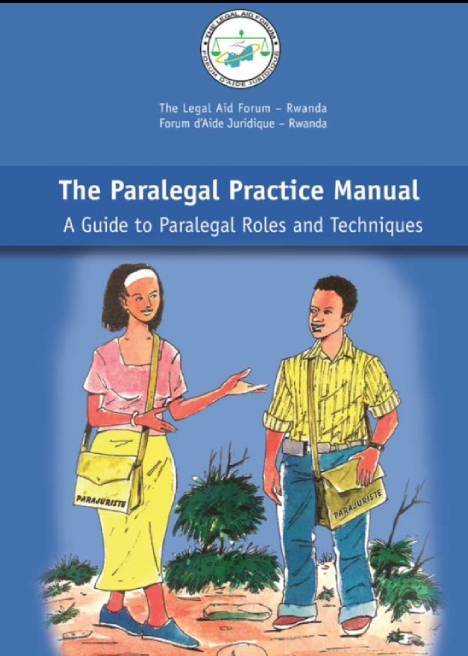Research and Advocacy
Since its establishment, LAF has had significant success with its advocacy for changes in law, regulations, policy, and practice in the provision of legal aid services, access to justice and the respect and protection of human rights. This success is a result of advocacy based on sound qualitative and quantitative research, and expert legal analysis. LAF presents its findings and recommendations through a range of tools which include the Publishing research reports and position papers, organizing and attending conferences, meetings, events and uses the media, as well as direct engagement with ministries and parliamentarians
Research Reports








Capacity Building
Even though Rwanda has a large number of justice actors, particularly Civil Society Organizations, who support access to justice, it is crucial to step back and assess the effectiveness of legal aid service delivery. We have set out on a mission to develop and strengthen the capacity of Rwanda's legal aid service providers in order to guarantee that every person who requests legal services is greeted with capable service providers and excellent legal services. Both state and non-state legal aid providers, human rights advocates, other actors, and occasionally LAF service recipients are the focus of the capacity-building sessions.
Our Capacity Building beneficiaries

Legal Aid Attorneys
We regularly train Legal Aid Attorneys on Legal Aid Performance Standards to ensure consistency in the delivery of legal aid services across legal aid providers. This is important because people accessing the services of legal aid providers in different parts of the county should receive similar services. The standards focus on the responsibilities of a legal aid provider while receiving and providing legal aid services to a beneficiary. We also build the capacity of Lawyers on various relevant legal instruments and skills to advance their work including new laws and legal procedures, international legal frameworks on human rights, using electronic case management Systems, etc.

Community Based Paralegals
We regularly train our community-based paralegals on key and commonly used laws to ensure the effectiveness and quality of services they provide. These trainings empower them to use updated/current laws and provide them with useful knowledge needed in their daily work. A specific investment has been made in training paralegals on data management and electronic reporting to enable them to effectively report on their work and facilitate their role in providing quality legal aid services.

Professional Court Bailiffs
We embarked on a mission to train Professional Court Bailiffs on using Integrated Electronic Case Management (IECMS) to increase their capacity to use the system to deliver justice to poor and most marginalized community members effectively. This followed our assessment report “Capacity Needs Assessment on Access to Justice Delivery in Rwanda, May 2022” in which several respondents, including Professional Court Bailiffs, acknowledged several capacity challenges related to the use of IECMS.

Journalists
We conduct various capacity-building sessions for journalists with the objective of having a media that is skilled in broadcasting and publishing legal information, equipped with basic knowledge of human rights, and reporting professionally on justice and human rights issues. We also train Journalists on legal frameworks governing their work to ensure that they do not collide with the law.

Refugees and host communities leaders
We facilitate training sessions for local leaders in Mahama Refugee Camp and the host community, focusing on promoting peaceful cohabitation between the two communities. These sessions equip leaders with valuable knowledge and skills in non-violent conflict resolution, including mediation techniques, to effectively address conflicts and foster a harmonious society.




